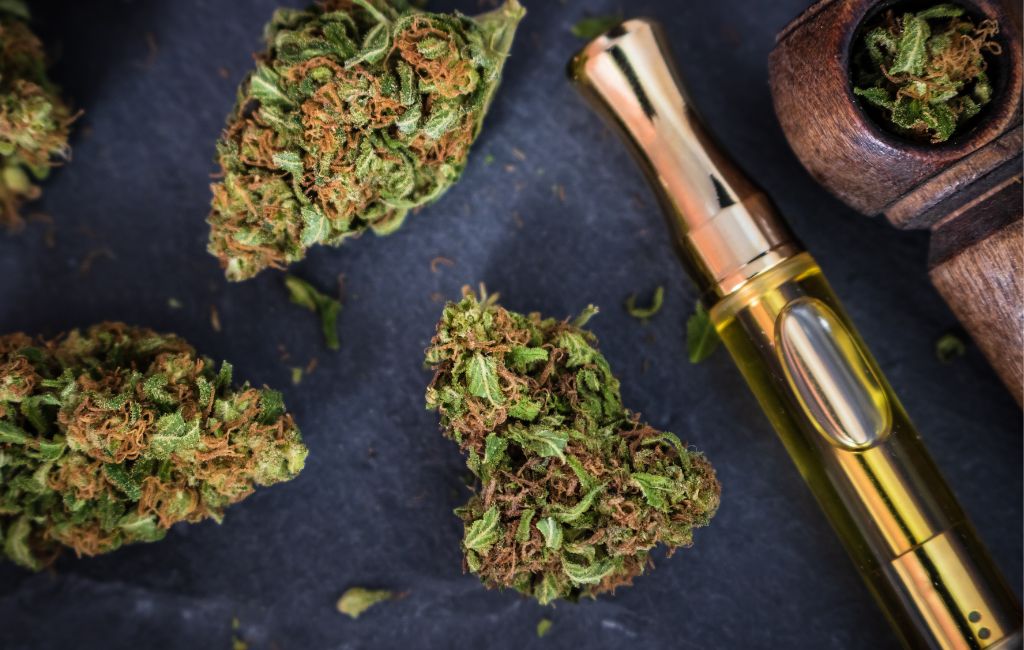The exploration of cannabis and its myriad compounds has led to the discovery of THCa, a non-psychoactive cannabinoid that has garnered attention for its potential benefits. Among the various strains, the THCa Vanilla Flower stands out for its unique properties and appeal. This article delves into the journey of THCa Vanilla Flower, exploring its origins, characteristics, and potential applications.
Understanding THCa
THCa, or tetrahydrocannabinolic acid, is a precursor to THC, the compound responsible for the psychoactive effects of cannabis. Unlike THC, THCa does not produce a high, making it an attractive option for those seeking the therapeutic benefits of cannabis without the psychoactive effects. THCa is found in raw and live cannabis plants and is converted to THC through a process called decarboxylation, which occurs when the plant is heated.
Potential Benefits of THCa
- Anti-inflammatory properties
- Neuroprotective effects
- Anti-emetic (anti-nausea) potential
- Possible anti-cancer properties
Research into THCa is still in its early stages, but preliminary studies suggest that it may offer a range of health benefits. Its anti-inflammatory properties, for instance, could make it useful in managing conditions like arthritis. Additionally, its neuroprotective effects might offer potential in treating neurodegenerative diseases.
The Allure of Vanilla Flower
The Vanilla Flower strain is renowned for its aromatic profile and potential therapeutic benefits. It is characterized by a sweet, vanilla-like aroma, which is a result of its unique terpene profile. Terpenes are aromatic compounds found in many plants, including cannabis, and they play a significant role in the plant’s aroma and potential effects.
Terpene Profile of Vanilla Flower
- Linalool: Known for its calming effects
- Myrcene: Offers sedative properties
- Pinene: May improve focus and alertness
The combination of these terpenes not only contributes to the strain’s distinctive aroma but also enhances its potential therapeutic effects. For instance, linalool and myrcene may provide a relaxing experience, making Vanilla Flower a popular choice for those seeking stress relief.
Case Studies and Research
Several case studies have explored the potential benefits of THCa and strains like Vanilla Flower. One study focused on patients with chronic pain who reported significant relief after using THCa-rich strains. Another research project examined the anti-inflammatory effects of THCa, finding promising results in reducing inflammation markers in animal models.
While these studies are encouraging, more research is needed to fully understand the potential applications of THCa and its various strains. The current body of research highlights the need for further exploration into the therapeutic potential of non-psychoactive cannabinoids.
THCa Vanilla Flower in the Market
The growing interest in THCa and strains like Vanilla Flower has led to an increase in their availability in the market. Consumers are drawn to these products for their potential health benefits and unique aromatic profiles. Dispensaries and online retailers now offer a variety of THCa-rich products, including tinctures, capsules, and raw flower.
Consumer Considerations
- Check for third-party lab testing to ensure product quality
- Understand the legal status of THCa in your region
- Consult with a healthcare professional before use
As with any cannabis product, consumers should be informed about the quality and legality of the products they purchase. Third-party lab testing can provide assurance of product purity and potency, while understanding local laws can prevent legal issues.
Conclusion
The journey to THCa Vanilla Flower is one of discovery and potential. As research continues to uncover the benefits of THCa and its unique strains, consumers have the opportunity to explore new avenues for health and wellness. The Vanilla Flower strain, with its distinctive aroma and potential therapeutic effects, represents a promising option for those seeking non-psychoactive cannabis solutions. As the market for THCa products grows, informed consumers can make choices that align with their health goals and preferences.
